Adway Girish
Fundamental Limits of Prompt Compression: A Rate-Distortion Framework for Black-Box Language Models
Jul 22, 2024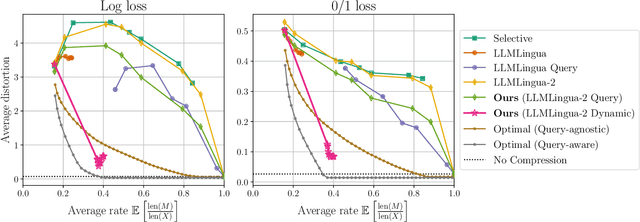
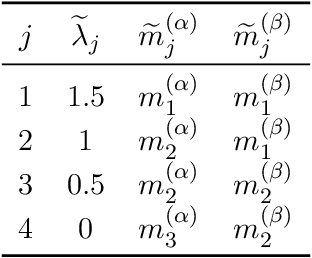
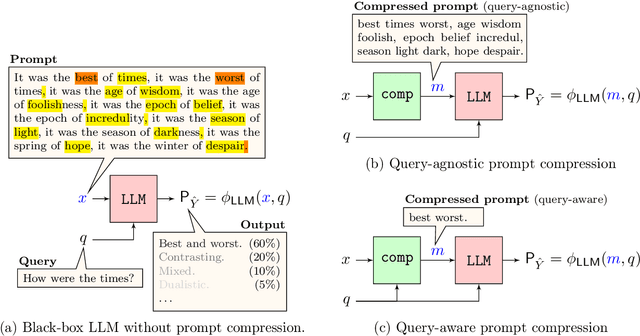
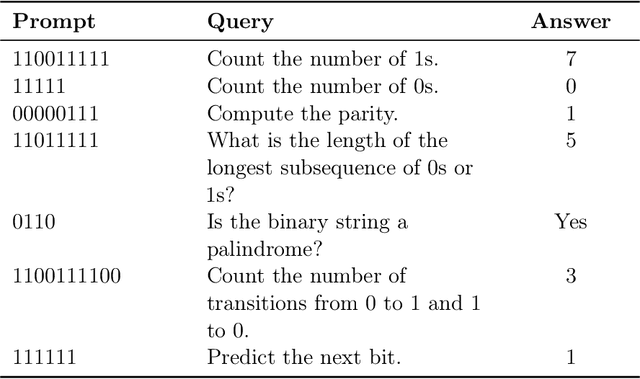
Abstract:We formalize the problem of prompt compression for large language models (LLMs) and present a framework to unify token-level prompt compression methods which create hard prompts for black-box models. We derive the distortion-rate function for this setup as a linear program, and provide an efficient algorithm to compute this fundamental limit via the dual of the linear program. Using the distortion-rate function as the baseline, we study the performance of existing compression schemes on a synthetic dataset consisting of prompts generated from a Markov chain, natural language queries, and their respective answers. Our empirical analysis demonstrates the criticality of query-aware prompt compression, where the compressor has knowledge of the downstream task/query for the black-box LLM. We show that there is a large gap between the performance of current prompt compression methods and the optimal strategy, and propose a query-aware, variable-rate adaptation of a prior work to close the gap. We extend our experiments to a small natural language dataset to further confirm our findings on our synthetic dataset.
Local to Global: Learning Dynamics and Effect of Initialization for Transformers
Jun 05, 2024



Abstract:In recent years, transformer-based models have revolutionized deep learning, particularly in sequence modeling. To better understand this phenomenon, there is a growing interest in using Markov input processes to study transformers. However, our current understanding in this regard remains limited with many fundamental questions about how transformers learn Markov chains still unanswered. In this paper, we address this by focusing on first-order Markov chains and single-layer transformers, providing a comprehensive characterization of the learning dynamics in this context. Specifically, we prove that transformer parameters trained on next-token prediction loss can either converge to global or local minima, contingent on the initialization and the Markovian data properties, and we characterize the precise conditions under which this occurs. To the best of our knowledge, this is the first result of its kind highlighting the role of initialization. We further demonstrate that our theoretical findings are corroborated by empirical evidence. Based on these insights, we provide guidelines for the initialization of transformer parameters and demonstrate their effectiveness. Finally, we outline several open problems in this arena. Code is available at: \url{https://anonymous.4open.science/r/Local-to-Global-C70B/}.
Attention with Markov: A Framework for Principled Analysis of Transformers via Markov Chains
Feb 06, 2024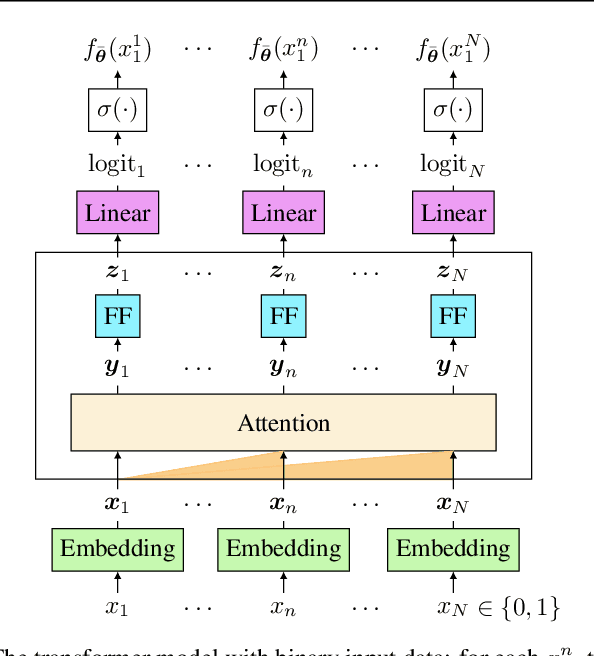


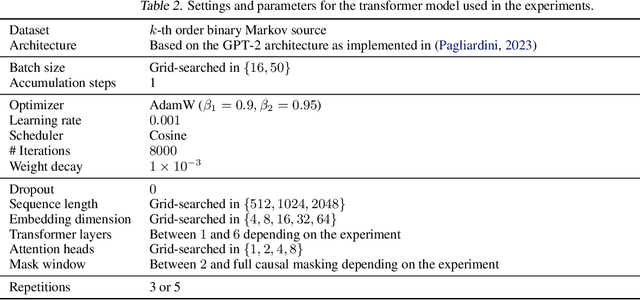
Abstract:In recent years, attention-based transformers have achieved tremendous success across a variety of disciplines including natural languages. A key ingredient behind their success is the generative pretraining procedure, during which these models are trained on a large text corpus in an auto-regressive manner. To shed light on this phenomenon, we propose a new framework that allows both theory and systematic experiments to study the sequential modeling capabilities of transformers through the lens of Markov chains. Inspired by the Markovianity of natural languages, we model the data as a Markovian source and utilize this framework to systematically study the interplay between the data-distributional properties, the transformer architecture, the learnt distribution, and the final model performance. In particular, we theoretically characterize the loss landscape of single-layer transformers and show the existence of global minima and bad local minima contingent upon the specific data characteristics and the transformer architecture. Backed by experiments, we demonstrate that our theoretical findings are in congruence with the empirical results. We further investigate these findings in the broader context of higher order Markov chains and deeper architectures, and outline open problems in this arena. Code is available at \url{https://github.com/Bond1995/Markov}.
ICQ: A Quantization Scheme for Best-Arm Identification Over Bit-Constrained Channels
Apr 30, 2023



Abstract:We study the problem of best-arm identification in a distributed variant of the multi-armed bandit setting, with a central learner and multiple agents. Each agent is associated with an arm of the bandit, generating stochastic rewards following an unknown distribution. Further, each agent can communicate the observed rewards with the learner over a bit-constrained channel. We propose a novel quantization scheme called Inflating Confidence for Quantization (ICQ) that can be applied to existing confidence-bound based learning algorithms such as Successive Elimination. We analyze the performance of ICQ applied to Successive Elimination and show that the overall algorithm, named ICQ-SE, has the order-optimal sample complexity as that of the (unquantized) SE algorithm. Moreover, it requires only an exponentially sparse frequency of communication between the learner and the agents, thus requiring considerably fewer bits than existing quantization schemes to successfully identify the best arm. We validate the performance improvement offered by ICQ with other quantization methods through numerical experiments.
 Add to Chrome
Add to Chrome Add to Firefox
Add to Firefox Add to Edge
Add to Edge